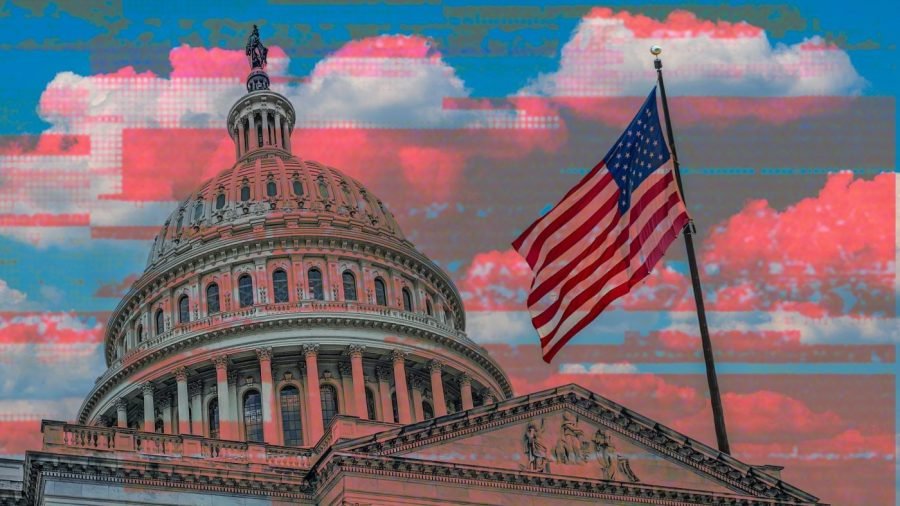
Artificial intelligence isn’t just changing how we work but how we live. As a surgeon, I have seen how AI tools can reduce diagnostic errors, streamline paperwork and free me to spend more time with patients. It doesn’t replace me — it makes me better at my job. In many ways, it lets me be more human.
From agriculture to education, logistics to climate response, AI is already solving real problems. But the disruption is real, too — job losses, confusion and rising public distrust. Without direction, AI could deepen inequality, concentrate power and erode trust in democratic institutions. With the right leadership, it could do the opposite.
This moment demands more than regulation. It needs vision — strategic, inclusive and grounded in shared democratic values. And that’s where Washington comes in.
I grew up in India, trained in Britain and now live and teach in Canada. Across continents, I have seen how new technologies can lift societies — or leave people behind. When the internet and personal computers emerged, many feared mass unemployment. There was disruption, yes, but also new industries, jobs and hope. AI holds similar potential — if we prepare wisely.
The job losses AI is causing aren’t speculative — they’re already here. But they don’t have to become casualties of progress. We can act now by funding real retraining, preparing people for future work and ensuring that AI’s benefits reach beyond boardrooms to classrooms, clinics and communities.
A practical step forward could be launching an “AI impact initiative” — a public-private partnership that deploys vetted tools into real-world settings. Used wisely, AI can ease workloads, reduce burnout and free up time for what matters most — improving both productivity and quality of life.
Globally, Washington could convene a “democratic tech compact,” bringing together like-minded nations to align on trusted AI standards, open-data protocols and safeguards — offering a responsible counterweight to authoritarian AI models.
AI, done right, could revive the middle class, restoring dignity to work, expanding access to services and letting people focus on what matters. It could also help us respond to crises, from pandemics to wildfires, with more speed and less chaos.
But it won’t happen through fragmented legislation. Washington must lead — by uniting democratic allies, industry, civil society and those working with AI every day.
This coalition could build something lasting: shared principles like transparency, fairness and accountability. Shared tools — open datasets, regional innovation hubs and incentives for responsible development. A blueprint for the kind of world we want AI to help build.
Imagine if companies were recognized not just for breakthroughs, but for building systems that reduce burnout, stabilize supply chains and support everyday workers. That’s not science fiction. That’s a policy choice.
Some early steps are promising. Congress is exploring bipartisan legislation on AI research and deepfakes. But what’s missing is a coordinated roadmap — one that drives innovation, protects economic stability and brings democratic partners together to shape a future where technology strengthens, rather than destabilizes, our institutions.
If the U.S. doesn’t lead, others will. Authoritarian regimes are already using AI — not to serve people, but to surveil and control them. When Vladimir Putin said in 2017, “Whoever leads in AI will rule the world,” he was telling the truth.
I don’t write this as an American. But like many around the world, I have seen how U.S. leadership can set the tone — not through dominance, but by offering direction rooted in freedom, fairness and trust.
And AI desperately needs that guidance. In medicine, we don’t let even the most gifted surgical trainees operate solo on day one — not because they lack potential, but because safety depends on oversight and structure. AI demands the same — not suppression, but stewardship.
We’ve been here before, on the edge of revolutions we didn’t fully understand. This time, we can be more prepared. We can build the foundation for a future where innovation and human dignity grow together.
The decisions made today won’t just shape AI. They will shape the kind of world we live in, and the one we leave behind. And because Washington holds unmatched influence — economic, military and technological — its leadership matters more than ever. Not to dominate the future, but to help humanity rise with it.
Dr. Debakant Jena is an orthopedic surgeon, an assistant professor at the University of Calgary and a first-generation immigrant to Canada. He has written extensively on Canadian policy, immigration and international relations.






